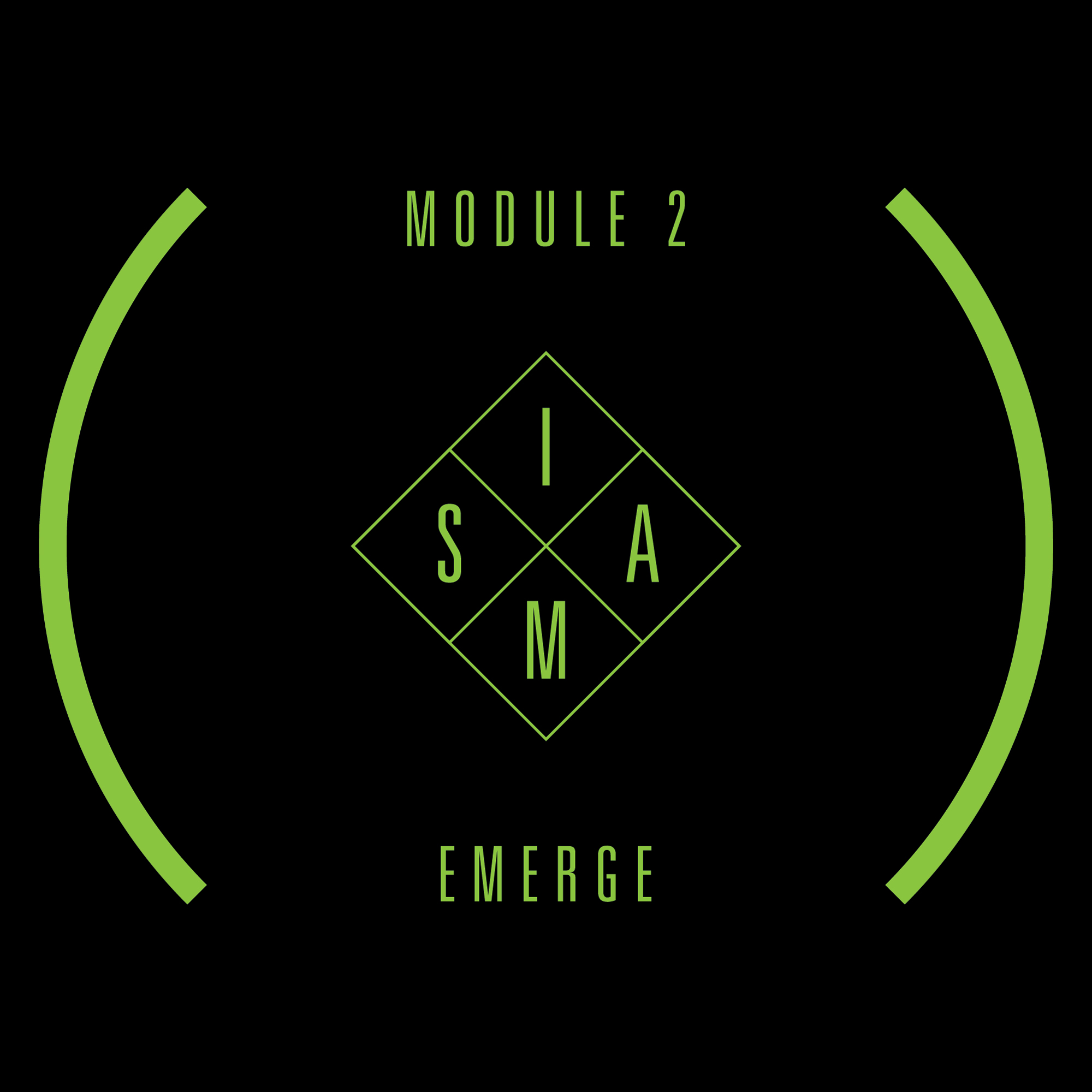采访:山人 Shan Ren Interview
By Josh, 2011年 3月 10日
《 看中文采访 》
Back in the halcyon days of La Loupe‘s regular appearances at Jiangjinjiu and Jianghu, I’d often run into a long-braided multi-instrumentalist who would jump on stage unexpectedly to accompany whatever band was playing on whatever instrument was lying around. In time I learned this was Xiao Bu Dian, one of the impressively diverse mountain men that make up Shan Ren.
A band that is called “folk rock” because that’s a lot easier than trying to list every genre they fold into their style, Shan Ren has been on the road of late seeking new inspiration from rural folk traditions in their frontman’s native Yunnan. I asked them a few questions before their upcoming JUE festival performance at Star Live (now called Tango for some reason).
[+] 豆瓣页面 douban event page
pangbianr: Can you give a basic introduction to Shan Ren – the members, where everyone is from, when and how the band started, and how you chose the name?
Shan Ren: Hi everyone. We are Shanren from Yunnan province, South-west china. The band has been going under the name Shanren for almost ten years. The lead singer/songwriter is Qu Zihan from Kunming who started working with drummer Xiao Ou right from the beginning. Ai Yong, Wa [minority group] from Ximeng near the Myanmar border joined the band a few years later and most recently Xiao Budian, Buyi [minority group] from Guizhou Province. Their addition added a new dimension to the music. Recently we have also been playing with guest performer Sam Debell from the UK on percussion. Sam was actually playing with us back ten years ago. The name Shanren reflected an intended musical direction even back then which was to combine modern elements with the ethnic music of Yunnan province.
pangbianr: Shan Ren is one of the most eclectic bands I’ve seen in Beijing, mixing styles as diverse as reggae, funk, metal, and folk. Over the course of a performance it becomes apparent that each band member has a different musical background that they bring to the whole. What are your major musical influences and how do you go about incorporating different styles into the overall sound of Shan Ren?
Shan Ren: Combining styles together in a way that doesnt feel strange and contrived is always our biggest challenge. Qu Zihan’s creativity seems to come straight out of his head and never sounds like anything else. Music that you mentioned are all influences but also ethnic sounds, not just from China but also from around the world give us new ideas which come into the music. As to one major influence that forms our direction, there is none. We’re kind out out there by ourselves.
Shan Ren – “蚂蚱”, “姑娘的酒窝”, “还钱”
pangbianr: Shan Ren also has an interesting instrumentation. In addition to Xiao Bu Dian – whom I’ve seen play virtually every instrument I can think of — one member sometimes plays what looks to me like a cross between a floor tom and a bass guitar. Can you tell me more about the different instruments Shan Ren uses?
Shan Ren: The main instruments that attract attention are the small Xianzi played by Qu Zihan which is a Yi zu instrument from the Chuxiong county Ou Yunnan and the big ‘three string’ from the Sani zu of the Stone Forest area near Kunming. Xiao Budian’s little banjo is an ancient Han instrument called a Qin Qin. He also plays a collection of other small instruments from various ethnic groups in China and other parts of the World. The primary aim of using these instruments is to expand sonic possibilties and add an ethnic flavour to our music.
pangbianr: Though Shan Ren is diverse in its style, it is usually referred to as a folk band. Are you comfortable with this label?
Shan Ren: We think that it’s fair to call us that because it is the constant through-running element to our music. We are often described as folk rock and it’s impossible to deny the rock influence either. Other styles are, however, secondary to Chinese folk elements. The problem with forging your own sound is that people have a problem defining it. The folk tag is ok with us though. Other than that people can define us as they feel fit!
pangbianr: What are the best venues for Shan Ren to play in Beijing? What are some bands/musicians you particularly enjoy playing with, or whose work you admire?
Shan Ren: Considering we’re good friends with the owners of almost all the venues in Beijing we can only say that we like them all equally! We’ve always been fans of Zi Yue. Hanggai are a big role model in some ways. The Wild Children were a big musical inspiration and now Zhangquan continues to be as solo artist.
pangbianr: Shan Ren has been on the road lately. Where all have you gone? What were you doing on this trip?
Shan Ren: We are currently on the road travelling around remote regions of Yunnan seeking out ethnic musicians, instruments and folk songs for use in our next album. The whole thing is being filmed for a documentary which will be very informative for anybody interested in Chinese music and especially Yunnan. We’ve been to villages in Chuxiong, travelled up the Nujiang Valley and now we’re cutting across to Ximeng on the Mianmar border. We’ve met ‘minjian artists’. From the Yi, Lisu, Nu, Tibetan, Dulong and Wa ethnic groups and sampled all kinds of instruments and folk songs. It’s been a great learning experience for us and is helping expand our understanding of different ethnic music from Yunnan, which continues to amaze us with it’s depth and richness.


pangbianr: What are your plans for the future (recording, touring, etc)?
Shan Ren: As much as we can fit in. We’ve been delaying our second album for too long so that is a priority. In the summer we are hoping to attend some European festivals and of course as many festivals as we can in China too!
[+] 豆瓣页面 douban event page
旁边儿:可以先介绍一下山人乐队吗?成员都来自哪儿?乐队是什么时候开始建立的?
山人: 大家好,我们是山人乐队,来自中国西南部的云南省。乐队从成立至今近十年了。分别有主唱瞿子寒,来自昆明,最早由他与鼓手小欧开始乐队组建。艾勇是佤族人,来自靠近缅甸边境的西盟,乐队成立数年后加盟山人,小不点是来自贵州省的布依族。他们的加入让山人的音乐注入了更多新元素。最近我们还特邀了来自英国的打击乐手Sam Debell. Sam实际上十年前就和我们在一起玩音乐。关于山人的队名是有意对音乐方向发展反思,把云南当地民族音乐与现代元素之间的一种相结合。
旁边儿:山人乐队演奏一些非常有趣的乐器。除了小不点——他好像会演奏我所能想到的所有乐器。我有一次看见你们演奏一把低音吉他,但底部却有一个通鼓。可以分享更多关于山人乐队使用不同的乐器吗?
山人: 那是我们所演奏的令人最受注意的一种乐器叫做弦子,是由瞿子寒演奏的一种彝族民族乐器,来自于云南楚雄县。还有大“三弦”来自昆明石林的撒尼族。小不点的小班卓是一个古汉朝的乐器叫做秦琴。他也演奏一些其它不同民族和全世界各地的小乐器。最主要是旨在于拓展声音的可能性,以及我们的音乐所带来的民族风味。
旁边儿: 虽然山人乐队有着许多不同的音乐元素,但还是以民谣风格来著称,你们认为这个标签对你们贴切吗?
山人: 我们觉得那也很贴切,因为在我们的音乐当中是,我们经常以民谣摇滚来描述山人的音乐,这也不可否认摇滚乐对我们的影响。其他音乐风格,像中国的民谣元素也有。关键是塑造属于自己的音乐风格而不是别人怎么定义它,民谣对于我们来说也相符。
旁边儿:在北京你们觉得哪些演出场所比较出色?你们喜欢与哪些音乐人一起表演,或者令你们欣赏的音乐人?
山人: 考虑到所有北京的演出场地都是我们的好朋友,我只想说所有场地都很不错。我们一直很喜欢的乐队子曰。杭盖在某些方面也是相当有榜样的。野孩子乐队是很棒的乐队, 它曾经对我们的影响也很大。


旁边儿:山人乐队最近正在旅行中,你们都有去过哪些地方以及对这次旅行感觉如何?
山人: 我们目前正在偏僻的云南地区旅行,也是为了搜寻一些民间音乐,传统乐器以及民歌等素材为下一张专辑准备。整个过程将会以记录的方式拍摄成一部有关于中国尤其是云南当地的民族音乐的纪录片。我们去了楚西的郊区,穿越了怒江峡谷,现在我们正在缅甸边境的西盟。我们有遇见一些“民间艺术家”,有来自彝族、傈僳族、怒族、藏族、独龙族和佤族,并且有采样当地的民歌和一些传统乐器。对于我们来说是一个非常好的学习经历,并且有助于我们了解了更多的云南民族音乐。
旁边儿:接下来乐队有什么计划?
山人: 我们准备的差不多了,我们的第二张专辑拖延太长时间了,所以这会是优先考虑去完成的计划。今年夏天,我们希望参加一些欧洲以及国内的音乐节,希望把云南最草根最民间的音乐推上世界。







